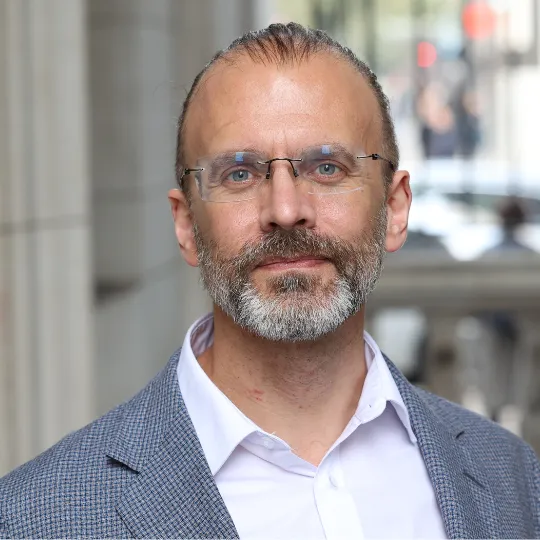“These findings show that the conspiracy fantasies currently circulating on social media are likely to present a major public health risk, potentially compromising our ability to fight against the pandemic. “The findings are also consistent with earlier studies which have found a relationship between conspiracy beliefs and reluctance to follow public health advice with regard both to vaccination and to safer sex[1], added Dr Allington.
Dr Daniel Allington, Senior Lecturer in Social and Cultural Artificial Intelligence
09 April 2020
COVID-19 conspiracy theories present 'substantial' health risk, new research finds
People who believe in COVID-19 conspiracy theories and misinformation are more likely to agree that there’s ‘no real reason’ for the lockdown

A relationship between belief in COVID-19 conspiracy theories and agreement with three statements designed to assess trends around potential compliance with measures currently being used to control the outbreak in the UK was found by researchers from the Department of Digital Humanities.
Altogether 37 per cent of the CitizenMe survey respondents who believe there is a connection between 5G mobile network radiation and COVID-19 were also found to believe that there is no good reason for the lockdown.
Twenty-nine per cent of survey respondents expressed belief in one or more of the three conspiracy theories.
Dr Daniel Allington, Senior Lecturer in Social and Cultural Artificial Intelligence at King’s, carried out the research along with Digital Humanities colleague Nayana Dhavan.
The three conspiracy beliefs that almost 1000 UK adults were asked about were as follows:
- The virus that causes COVID-19 was probably created in a laboratory
- The symptoms of COVID-19 seem to be connected to 5G mobile network radiation
- The COVID-19 pandemic was planned by certain pharmaceutical corporations and government agencies
The three statements that were used to measure potential compliance were as follows:
A. The single most important action we can all take in fighting COVID-19 is to stay at home in order to protect the NHS and save lives
B. The government wants us all to stay at home now, but there's no good reason for that
C. We all have a responsibility to defeat COVID-19 by following government guidance
Each conspiracy belief appeared to have a statistically significant effect on agreement with each of the three statements: belief in any of the three conspiracy theories was associated with lower agreement with statements A and B (‘The single most important action we can all take in fighting COVID-19 is to stay at home in order to protect the NHS and save lives’ and ‘We all have a responsibility to defeat COVID-19 by following government guidance’) and higher agreement with statement C (‘The government wants us all to stay at home now, but there's no good reason for that’).
Overall researchers found that conspiracy belief 2 had the strongest effect on agreement with statement B.
Imran Ahmed, CEO of the Centre for Countering Digital Hate, who published the report, said: “Covid-19-related conspiracies have been treated like a bit of a laugh, but the reality is that the cost will be paid in lives, just as anti-vaccine conspiracies have led to terrible suffering and death with the resurgence of once-eradicated diseases.
“In this global struggle, where all of us are taking unprecedented steps to limit the damage done by Covid-19, it’s deeply concerning that social media companies still refuse to act on their promises and put public safety above profits.”
[1] (Thorburn and Bogart 2005, Grebe and Nattrass 2012, Jolley and Douglas 2014).

